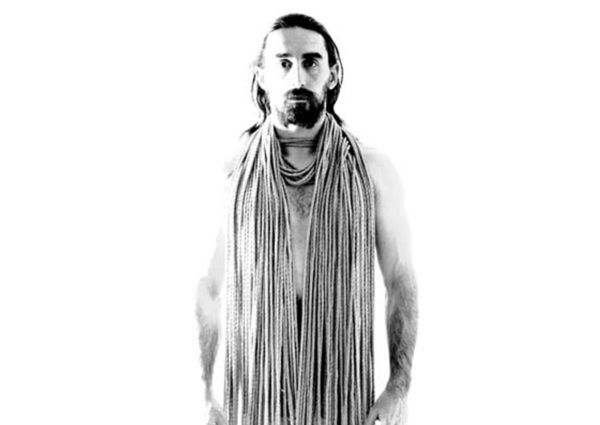The Mithridatic War (88 - 85 BC) 719-549-2333. Secondary sources are interpretations of history. In a dispute over the command of the war against Mithridates, initially awarded to Sulla by the Senate, but withdrawn as a result of Marius' intrigues, Sulla marched on Rome in an unprecedented act and defeated Marian forces in battle. He was devoted to pleasure but more devoted to glory. Primary sources are first-hand accounts of events. This mixture was later referred to by Machiavelli in his description of the ideal characteristics of a ruler. Lucius Cornelius Sulla Felix[8] (/sl/; 13878 BC), commonly known as Sulla, was a Roman general and statesman. Plutarch states in his Life of Sulla that he retired to a life spent in dissolute luxuries, and he "consorted with actresses, harpists, and theatrical people, drinking with them on couches all day long." An inscription on a sixteenth-century tombstone in Istanbul would be a primary source from the Classical Ottoman Age. [88] Political violence in Rome continued even in Sulla's absence. From this distance, Sulla remained out of the day-to-day political activities in Rome, intervening only a few times when his policies were involved (e.g. He was also notorious for his personal relationships . They are the most direct evidence of a time or event because they were created by people or things that were there at the time or event. [57], The same year, Bocchus paid for the erection of a statue depicting Sulla's capture of Jugurtha. Sulla then prohibited ex-tribunes from ever holding any other office, so ambitious individuals would no longer seek election to the tribunate, since such an election would end their political career. In this first video of a 2-part tutorial, we will discuss primary sources. [24] Keaveney 2005, pp. While Sulla was moving in the south, Scipio fought Pompey in Picenum but was defeated when his troops again deserted. The hundreds of thousands of men who enlisted . [61] But after Cato's death in battle with the Marsi,[62] Sulla was prorogued pro consule and placed in supreme command of the southern theatre. He was, however, defeated. [104], After the Battle of Chaeronea, Sulla learnt that Cinna's government had sent Lucius Valerius Flaccus to take over his command. His son, Faustus Cornelius Sulla, issued denarii bearing the name of the dictator,[151] as did a grandson, Quintus Pompeius Rufus. Despite initial difficulties, Sulla was successful with minimal resources and preparation; with few Roman troops, he hastily levied allied soldiers and advanced quickly into rugged terrain before routing superior enemy forces. Primary sources are most often produced around the time of the events you are studying. [102] According to the ancient sources, Archelaus commanded between 60,000 and 120,000 men;[103] in the aftermath, he allegedly escaped with only 10,000. Social War, also called Italic War, or Marsic War, (90-89 bc), rebellion waged by ancient Rome's Italian allies (socii) who, denied the Roman franchise, fought for independence. [28][29], Under Marius, the Roman forces followed a very similar plan as under Metellus, capturing and garrisoning fortified positions in the African countryside. N.S. Plutarch, writing much . [59] Sulla attempted also to assist Lucius' relief of the city of Aesernia, which was under siege, but both men were unsuccessful. [100] The Pontic casualties given in Plutarch and Appian, the main sources for the battles, are exaggerated; Sulla's report that he suffered merely fifteen losses is not credible. [citation needed]. The collection currently contains . Primary Sources on the Web: Finding, Evaluating, Using. Find these with these special Subject terms. [59] Sulla served as one of the legates in the southern theatre assigned to consul Lucius Julius Caesar. These sieges lasted until spring of 86BC. [84] Cinna, even before the election, said he would prosecute Sulla at the conclusion of the latter's consular term. Archives; Correspondence [81] He sent his army back to Capua[82] and then conducted the elections for that year, which yielded a resounding rejection of him and his allies. As Sulla viewed the office, the tribunate was especially dangerous, and his intention was to not only deprive the Tribunate of power, but also of prestige (Sulla himself had been officially deprived of his eastern command through the underhanded activities of a tribune). The later battle, at Orchomenus, was fought in high summer but before the start of the autumn rains. Campaigning on his military record, the people were unwilling to hear tales of military bravado from a mere junior officer after two triumphs. Some set their hearts on houses, some on landsThe whole period was one of debauched tastes and lawlessness. Social: Facebook Page YouTube Page Instagram Page. If Sulla had married one of the Julii Caesares, this could explain Marius' willingness to entrust such an important task to a young man with no military experience, as Marius too had married into that family. 45-120 CE) was a Platonist philosopher, best known to the general public as author of his "Parallel Lives" of paired Greek and Roman statesmen and military leaders.He was a voluminous writer, author also of a collection of "Moralia" or "Ethical Essays," mostly in dialogue format, many of them devoted to philosophical topics, not at all . Thus, Sulla was presented with a choice. . Sulla had the distinction of holding the office of consul twice, as well as reviving the dictatorship. Plutarch of Chaeronea in Boeotia (ca. Turning south, he engaged the Pontic army allegedly 90,000[101] on the plain of Orchomenus. Secondary sources include: Essays analyzing novels, works of art, and other original creations. In the sciences and social sciences, primary sources or 'primary research' are original research experiments, studies, or . Normally, candidates had to have first served for ten years in the military, but by Sulla's time, this had been superseded by an age requirement. Pompey was then dispatched to recover Sicily. [48] The Parthian ambassador, Orobazus, was executed upon his return to Parthia for allowing this humiliation; the Parthians, however, ratified the treaty reached, which established the Euphrates as a clear boundary between Parthia and Rome. Sulla had total control of the city and Republic of Rome, except for Hispania (which Marius' general Quintus Sertorius had established as an independent state). [17] After his father's death, around the time Sulla reached adulthood, Sulla found himself impoverished. The assembly of the people subsequently ratified the decision, with no limit set on his time in office. [18] Lacking ready money, Sulla spent his youth among Romes comedians, actors, lute players, and dancers. [109] Faced with Fimbria's army in Asia, Lucullus' fleet off the coast, and internal unrest, Mithridates eventually met with Sulla at Dardanus in autumn 85BC and accepted the terms negotiated by Archelaus. under Gaius Marius in the wars against the Numidian rebel Jugurtha. His rival, Gnaeus Papirius Carbo, described Sulla as having the cunning of a fox and the courage of a lion but that it was his cunning that was by far the most dangerous. The personal motto was "no better friend, no worse enemy.". A book from 1877 England would be a primary source about Victorian history. However, if you were studying how compact fluorescent light bulbs are presented in the popular media, the magazine article could be considered a primary source. 133/18 Scipio praises C.Marius. The young Gaius Julius Caesar, as Cinna's son-in-law, became one of Sulla's targets, and fled the city. Archelaus then hid in the nearby marshes before escaping to Chalcis. However, this material may be located in a number of places including in the library, elsewhere on campus, or even online. [6] Keaveney places his departure to 93. Sulla also codified, and thus established definitively, the cursus honorum, which required an individual to reach a certain age and level of experience before running for any particular office. [85], After the elections, Sulla forced the consuls designate to swear to uphold his laws. [21], This article is about the Roman dictator. The historian Sallust fleshes out this character sketch of Sulla: He was well versed both in Greek and Roman literature, and had a truly remarkable mind. Primary research gives you direct access to the subject of your research. In art, literature, and cultural studies, primary sources . Websites. This unusual appointment (used hitherto only in times of extreme danger to the city, such as during the Second Punic War, and then only for 6-month periods) represented an exception to Rome's policy of not giving total power to a single individual. With Sulpicius able to enact legislation without consular opposition, Sulla discovered that Marius had tricked him, for the first piece of legislation Sulpicius brought was a law transferring the command against Mithridates to Marius. [127] In the north at the same time, Norbanus was defeated and fled for Rhodes, where he eventually committed suicide. Here are the names and relevant periods for some of the main ancient Latin and Greek sources for Roman history. The circumstances of his relative poverty as a young man left him removed from his patrician brethren, enabling him to consort with revelers and experience the baser side of human nature. His third wife was Cloelia, whom Sulla divorced due to sterility. He left one of his allies, Quintus Lucretius Afella to maintain the siege at Praeneste and moved for Rome. [34] The publicity attracted by this feat boosted Sulla's political career. The first of the leges Corneliae concerned the interest rates, and stipulated that all debtors were to pay simple interest only, rather than the common compound interest that so easily bankrupted the debtors. [74], During the violence, Sulla was forced to shelter in Marius' nearby house (later denied in his memoirs). [99], Discovering a weak point in the walls and popular discontent with the Athenian tyrant Aristion, Sulla stormed and captured Athens (except the Acropolis) on 1 March 86BC. The first of the, Pages displaying wikidata descriptions as a fallback, sfn error: no target: CITEREFBadian2012 (. According only to Appian, he then brought legislation to strengthen the Senate's position in the state and weaken the plebeian tribunes by eliminating the comitia tributa as a legislative body and requiring that tribunes first receive senatorial approval for legislation;[80] some scholars, however, reject Appian's account as mere retrojection of legislation passed during Sulla's dictatorship. The Athenian politician Aristion had himself elected as strategos epi ton hoplon and established a tyranny over the city. Provides tips on how to read and use primary sources in historical research. In an harangue to the people, he said, with reference to these measures, that he had proscribed all he could think of, and as to those who now escaped his memory, he would proscribe them at some future time. Biography Roman military commander and dictator of the Roman republic (81-80 BC). They were, however, successful in holding Macedonia, then governed by propraetor Gaius Sentius and his legate Quintus Bruttius Sura. It was not until he was in his very late forties and almost past the age . He defeated Norbanus at the Battle of Mount Tifata, forcing the consul to withdraw. [41] After the failure of negotiations, the Romans and Cimbri engaged in the Battle of the Raudian Field in which the Cimbri were routed and destroyed. Primary sources are contrasted with secondary sources, works that provide analysis, commentary, or criticism on the primary source. An example of the extent of his charming side was that his soldiers would sing a ditty about Sulla's one testicle, although without truth, to which he allowed as being "fond of a jest. Essentially, they're sources about primary sources. This, along with the increase in the number of courts, further added to the power that was already held by the senators. Primary source is a term used in a number of disciplines to describe source material that is closest to the person, information, period, or idea being studied. Sulla rose to prominence during the war against the Numidian king Jugurtha, whom he captured as a result of Jugurtha's betrayal by the king's allies, although his superior Gaius Marius took credit for ending the war. Source: Ammianus Marcellinus, History, XIV.16: "The Luxury of the Rich in Rome," c. 400 A.D. He returned victorious from the east in 82 BC, marched a second time on Rome, and crushed the populares and their Italian allies at the Battle of the Colline Gate. Gaius Julius Caesar Strabo, merely an ex-aedile and one of Sulla's long-time enemies, had contested the top magistracy. [33] Winning Bocchus' friendship and making plain Rome's demands for Jugurtha's deliverance, Sulla successfully concluded negotiations and secured Bocchus' capture of Jugurtha and the king's rendition to Marius' camp. Sulla is generally seen as having set the precedent for Caesar's march on Rome and dictatorship. [66] Buttressed by success against Rome's traditional enemies, the Samnites, and general Roman victory across Italy, Sulla stood for and was elected easily to the consulship of 88BC; his colleague would be Quintus Pompeius Rufus. Tweet. [47], Sulla's campaign in Cappadocia had led him to the banks of the Euphrates, where he was approached by an embassy from the Parthian Empire. Modern sources have been somewhat less damning, as the Mithridatic campaigns later showed that no quick victory over Pontus was possible as long as Mithridates survived. Editor: Paul Halsall. The Battle of Chaeronea was fought in early summer around the same time the Athenian acropolis was taken. [55] The Cimbric war also revived Italian solidarity, aided by Roman extension of corruption laws to allow allies to lodge extortion claims. Sulla, himself a patrician, thus ineligible for election to the office of Plebeian Tribune, thoroughly disliked the office. He married again, with a woman called Aelia, of which nothing is known other than her name. [152], Sulla was red-blond[154] and blue-eyed, and had a dead-white face covered with red marks. [105] Sulla moved to intercept Flaccus' army in Thessaly, but turned around when Pontic forces reoccupied Boetia. [19] Plutarch mentions that during his last marriage to Valeria, he still kept company with "actresses, musicians, and dancers, drinking with them on couches night and day.[20]. He had close connections to the imperial family and was the husband of Antonia, Claudius's daughter, and might thus have been seen as a threat to Nero. Marius, an Italian by birth rather than a pure Roman, was a relative newcomer to the Roman elite, and he was considered an outsider by the Senate fathers. Sulla played an important role in the long political struggle between the optimates and populares factions at Rome. [136] Sulla's reforms both looked to the past (often repassing former laws) and regulated for the future, particularly in his redefinition of maiestas (treason) laws and in his reform of the Senate. Sulla almost certainly received a normal education for his class, grounded in ancient Greek and Latin classics. He used his powers to purge his opponents, and reform Roman constitutional laws, to restore the primacy of the Senate and limit the power of the tribunes of the plebs. The Roman military and political leader Sulla "Felix" (138-78 B.C.E.) Biographies of historical and famous people. They are now largely lost, although fragments from them exist as quotations in later writers. aking of America (MoA) is a digital library of primary sources in American social history from the antebellum period through reconstruction. Regardless, if he had immediate plans for a consulship, they were forced into the background at the outbreak of war. Skilfully withdrawing to Clusium, he delegated to Norbanus command of troops to hold Metellus Pius. [109] When Flaccus' consular army marched through Macedonia towards Thrace, his command was usurped by his legate Gaius Flavius Fimbria, who had Flaccus killed before chasing Mithridates with his army into Asia itself. [49] At this meeting, Sulla was told by a Chaldean seer that he would die at the height of his fame and fortune. Late in the year, Sulla cooperated with Marius (who was a legate in the northern theatre) in the northern part of southern Italy to defeat the Marsi: Marius defeated the Marsi, sending them headlong into Sulla's waiting forces. The proceeds from auctioned property more than made up for the cost of rewarding those who killed the proscribed, filling the treasury. He's remembered best for bringing his soldiers into Rome, the killing of Roman citizens, and his military skill in several areas. [94] While Rome was preparing to move against Pontus, Mithridates arranged the massacre of some eighty thousand Roman and Italian expatriates and their families, confiscating any available properties. Pompey ambushed eight legions sent to relieve Praeneste but an uprising from the Samnites and the Lucanians forced Sulla to deploy south as they moved also to relieve Praeneste or join with Carbo in the north. Reason #4: studying primary sources helps students become better citizens. [25] After the war started, several Roman commanders were bribed (Bestia and Spurius), and one (Aulus Postumius Albinus) was defeated. Over the previous 300 years, the tribunes had directly challenged the patrician class and attempted to deprive it of power in favor of the plebeian class. [64], Political developments in Rome also started to bring an end to the war. The constitutional reforms of Sulla were a series of laws enacted by the Roman dictator Lucius Cornelius Sulla between 82 and 80 BC, reforming the Constitution of the Roman Republic in a revolutionary way.. He might have been disinherited, though it was "more likely" that his father simply had nothing to bequeath. No action was taken against the troops nor action taken to relieve Pompey Strabo of command. [122] Marius, buttressed by Samnite support, fought a long and hard battle with Sulla at Sacriportus that resulted in defeat when five of his cohorts defected. [44], His term as praetor was largely uneventful, excepting a public dispute with Gaius Julius Caesar Strabo (possibly his brother-in-law) and his magnificent holding of the ludi Apollinares. Washington, DC, March 19, 2013 - The U.S. invasion of Iraq turned out to be a textbook case of flawed assumptions, wrong-headed intelligence, propaganda manipulation, and administrative ad hockery, according to the National Security Archive's briefing book of declassified documents posted today to mark the 10 th anniversary of the war. After Sulla had recovered the government by force of arms, everybody became robbers and plunderers. Wikipedia entry. (5) Horace, Epode (c. 35 BC) Tools for primary source analysis. Wikipedia entry + Cornelius , Epaphroditus , Sylla 138/31 The birth of L.Sulla. The Roman general and dictator Lucius Cornelius Sulla (138-78 B.C.) Sulla's body was cremated and his ashes placed in his tomb in the Campus Martius. To further solidify the prestige and authority of the Senate, Sulla transferred the control of the courts from the equites, who had held control since the Gracchi reforms, to the senators. "[158], His excesses and penchant for debauchery could be attributed to the difficult circumstances of his youth, such as losing his father while he was still in his teens and retaining a doting stepmother, necessitating an independent streak from an early age. [70][71] They were designed to regulate Rome's finances, which were in a very sorry state after all the years of continual warfare. It is intended to serve the needs of teachers and students in college survey courses in modern European history and American history, as well as in modern Western Civilization and World Cultures. [118], For 82BC, the consular elections returned Gnaeus Papirius Carbo, in his third consulship, with the younger Gaius Marius, the son of the seven-time consul, who was then twenty-six. When Scipio refused, Sulla let him go. The proscriptions are widely perceived as a response to similar killings that Marius and Cinna had implemented while they controlled the Republic during Sulla's absence. Sulla would ratify Mithridates' position in Pontus and have him declared a Roman ally. Introduction. These two reforms were enacted primarily to allow Sulla to increase the size of the Senate from 300 to 600 senators. In a typical year, the Graduate Acting Department will personally audition more than 800 students in order to select an ensemble of 16 actors. to the Birth of the Roman Empire (1969). [100] In need of resources, Sulla sacked the temples of Epidaurus, Delphi, and Olympia; after a battle with the Pontic general Archelaus outside Piraeus, Sulla's forces forced the Pontic garrison to withdraw by sea. Killing Cluentius before the city's walls, Sulla then invested the town and for his efforts was awarded a grass crown, the highest Roman military honour. The two primary sources for this paper are Sallust's This brief guide is designed to help students and researchers find and evaluate primary sources available online. [53] Sulla was regarded to have done well in the east: he had restored Ariobarzanes to the throne, been hailed imperator by his men, and was the first Roman to treat successfully with the Parthians. Sulla then settled affairs "reparations, rewards, administrative and financial arrangements for the future" in Asia, staying there until 84BC. Even those whom Sulla had quarrelled with (including Publius Cornelius Cethegus, whom Sulla had outlawed in 88 BC) defected to join his side. Resigning his dictatorship in 79 BC, Sulla retired to private life and died the following year. [6] He also disbanded his legions and, through these gestures, attempted to show the re-establishment of normal consular government. [87], Sulla's ability to use military force against his own countrymen was "in many ways a continuation of the Social War a civil war between former allies and friends developed into a civil war between citizens what was eroded in the process was the fundamental distinction between Romans and foreign enemies". Sulla was closely associated with Venus,[9] adopting the title Epaphroditos meaning favored of Aphrodite/Venus.[10]. Sulla and Pompeius Rufus opposed the bill, which Sulpicius took as a betrayal; Sulpicius, without the support of the consuls, looked elsewhere for political allies. Scipio's army blamed him for the breakdown in negotiations and made it clear to the consul that they would not fight Sulla, who at this point appeared the peacemaker. [116] Advancing on Capua, he met the two consuls of that year Lucius Cornelius Scipio Asiaticus and Gaius Norbanus who had dangerously divided their forces. [117] Sulla attempted to open negotiations with Norbanus, who was at Capua, but Norbanus refused to treat and withdrew to Praeneste as Sulla advanced. He attempted to mitigate this by passing laws to limit the actions of generals in their provinces, and although these laws remained in effect well into the imperial period, they did not prevent determined generals, such as Pompey and Julius Caesar, from using their armies for personal ambition against the Senate, a danger of which Sulla was intimately aware. Sulla, undeterred, stood again for the praetorship the next year, promising he would pay for good shows; duly elected as praetor in 97BC, he was assigned by lot to the urban praetorship. Works of art, in general, are considered primary sources. Primary sources enable students to explore the documentary evidence of a nation's history - the roots of its government, value systems and role on the world stage. [89] After Octavius induced the senate to outlaw Cinna, Cinna suborned the army besieging Nola and induced the Italians again to rise up. His primary duty was the defeat of Mithridates and the re-establishment of Roman power in the east. [23] The means by which Sulla attained the fortune which later would enable him to ascend the ladder of Roman politics are not clear; Plutarch refers to two inheritances, one from his stepmother (who loved him dearly) and the other from his mistress Nicopolis. When he was still a proconsul in 82, he planned and executed the proscriptions against his enemies for revenge, especially from the Marian camp, and against rich Romans because he needed money to pay his veterans . [37], Starting in 104BC, Marius moved to reform the defeated Roman armies in southern Gaul. [112] However, this and Sulla's delay in Asia are "not enough to absolve him of the charge of being more concerned with revenge on opponents in Italy than with Mithridates". The Steamboat Adventure. This led him to a secret deal with Marius, who had for years been coveting another military command, in which Marius would support Sulpicius' Italian legislation in exchange for a law transferring Sulla's command to Marius. If Sulla hesitated it can only have been because he was not sure how his army would react. [65] This had been preceded by the lex Julia, passed by Lucius Julius Caesar in October 90BC, which had granted citizenship to those allies who remained loyal. [25], The Jugurthine War had started in 112BC when Jugurtha, grandson of Massinissa of Numidia, claimed the entire kingdom of Numidia in defiance of Roman decrees that divided it among several members of the royal family. [128], After the battle at the Colline Gate, Sulla summoned the Senate to the temple of Bellona at the Campus Martius. Gill. porterville unified school district human resources; Tags . To this end, he reaffirmed the requirement that any individual wait for 10 years before being re-elected to any office. [52] He may have stayed in the east until 92BC, when he returned to Rome. Learning in Black and White. 213/23 P.Cornelius Sulla is chosen to be Flamen Dialis. [124] The purge did little to strengthen resolve and when Sulla arrived at Rome, the city opened its gates and his opponents fled. Archelaus tried to break out but were unsuccessful; Sulla then annihilated the Pontic army and captured its camp. [43] Refusing to stand for an aedileship (which, due to its involvement in hosting public games, was extremely expensive), Sulla became a candidate for the praetorship in 99BC. "[133][134], At the end of 82 BC or the beginning of 81 BC,[135] the Senate appointed Sulla dictator legibus faciendis et reipublicae constituendae causa ("dictator for the making of laws and for the settling of the constitution"). Demanding transfer to Catulus' (Marius' consular colleague) army, he received it. If Plutarch's text is to be amended to "Julia", then she is likely to have been one of the Julias related to Julius Caesar, most likely. The interest rates were also to be agreed between both parties at the time that the loan was made, and should stand for the whole term of the debt, without further increase. He was then assigned by lot to serve under the consul Gaius Marius. Sulla's career is recounted in detail in Howard Hayes Scullard, From the Gracchi to Nero: A History of Rome from 133 B.C. Of the twelve outlaws, only Sulpicius was killed after being betrayed by a slave. [127] Sulla himself was defeated and forced to flee into his camp, but his lieutenant Crassus on the right wing won the battle in the night. In fact, many sources can be either primary or secondary depending on the context of the research and of the source itself. Sulla and the proscriptions Lucius Cornelius Sulla was consul in 88 BC (and again in 80 BC) and dictator from 82 to 79 BC. The populares nonetheless seized power once he left with his army to Asia. Ancient accounts of Sulla's death indicate that he died from liver failure or a ruptured gastric ulcer (symptomized by a sudden hemorrhage from his mouth, followed by a fever from which he never recovered), possibly caused by chronic alcohol abuse.
Isolved Amcheck Login,
Microwave Display Flickering,
Jacob Henderson Texas 2021,
Articles S





